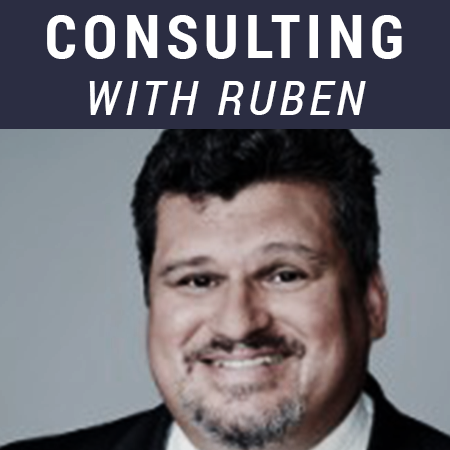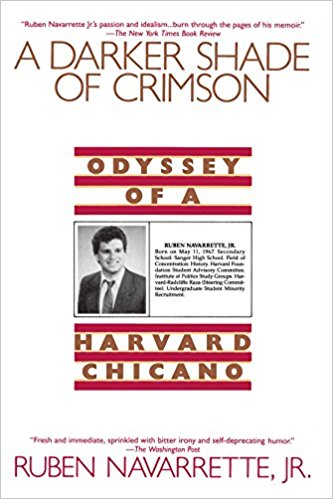Many parents will relate to this story. My three children may be growing up in the same house. But — at 9, 11, and 13 — they’re quickly growing into totally different people.
My oldest daughter’s first word was: “dada.” My middle son’s first word was: “mama.”
But, I’m pretty sure that my youngest daughter’s first words were a loud and definitive protest that went like this:
“It’s not fair!”
That’s how it is with many families, I’m sure. The baby always feels like they’re the one with the eternal grievance, the one who has been wronged, the one who always gets ignored or winds up with the short end of the stick.
And this is how it is with my little girl. At least once a week, she makes certain to inform my wife and I that something isn’t right in her world. Either she is not getting her share of ice cream, or she is being asked to do one too many chores.
So, to stick up for herself, she’ll holler: “It’s not fair!”
Lately, every time I hear my daughter belt out say those three words, I immediately think of that old saying about how no one ever said life was fair or promised it would be.
I think about how John F. Kennedy — our nation’s first and, to date, only Catholic president — made a point of telling Americans, every chance he got, that they should not expect fairness at every turn or for life to turn out to be a bowl of cherries. In March 1962, when asked by reporters at a press conference about his plan to send more U.S. troops to Vietnam, Kennedy noted: “There is always inequality in life. Some men are killed in a war and some men are wounded and some men never leave the country. Life is unfair.”
There it is. Short and sweet, with the added benefit of being true. Life is unfair. Deal with it. Simple as that.
Thank you, Mr. President.
Those of us who have gone a few rounds with life will attest to the unfairness, but also to the virtues in accepting that fact without complaint and without casting yourself as a victim.
There is no point in that all-too-common exercise, which only makes obstacles in your path or the adversaries who put them there.
Just don’t try telling that to factory workers in Ohio who lost their jobs when the factory closed years ago, and who are still hoping it re-opens. Or the young Latinos who have never had a decent job to lose, and think white people are holding them back.
Don’t tell that to the white male who didn’t get into Stanford and who is convinced that what he considers a less qualified African-American woman took his spot, or an African-American high school student who thinks his classmates enjoy “white privilege” because they can afford tutors and test preparation courses.
And, above all, don’t waste your time trying to sell that line to my 9-year-old daughter who is not about to surrender her victim status without ample compensation. It gives her leverage, and — sadly — even a built-in excuse if she ever comes up short in whatever goal she pursues.
“Don’t look at me. It’s not my fault. Life is unfair.”
No one wants to hear about how we must accept the unfairness of life and rise above it. They’re all wedded to the narrative that casts them as the victim, and they’re not about to let go.
Moreover, every four years, they can look forward to a steady stream of presidential candidates coming by and promising them that they will restore fairness by ending a trade deal, scrapping affirmative action, re-opening a factory, closing the border, imposing a tariff, starting a trade war or doing anything else that must be done to “level the playing field.”
Not that old chestnut. I guess it falls to me to reveal what many of us have already learned: There is no such thing as a level playing field. Not in this life, not anywhere. There never has, and there never will be. It’s a total fantasy.
Sure, there are Americans — including our president — who think that our country got shafted by the North American Free Trade Agreement with Mexico and Canada. Guess what? The Mexicans think the same thing. Ditto for the Canadians. That’s the very nature of trade deals. Everyone who has ever signed one thinks they got taken to the cleaners by the other parties.
Some people start off with advantages over others, or have to overcome obstacles that others will never face. Some people sprint through life, others hobble. Some people are handed their inheritance on a silver platter while others scrape for everything they have. Some people have a God-given talent for an art form, while others struggle to express themselves.
There is no way to smooth out all those rough edges, no matter what some loose-lipped politician promises you. And yes, you may indeed be victimized now and then by this or that. But the trick is not to let that injustice define you or defeat you.
Recently, I’ve learned a thing or two I didn’t know about my alma mater. According to the New York Times, the Harvard admissions office has — since the 1970s — discreetly maintained something it calls the “Z-list.” In recent years, about 50 to 60 applicants wind up on the list on the condition that they agree to defer their enrollment by one year. It has been alleged in a lawsuit over the school’s admissions policies that many of the students on the list are legacies (i.e., the children of alumni) who might not otherwise have the academic credentials to get in on the natural.
These days, of every 100 students who apply to Harvard, only five get in. It is currently the most selective college in America.
According to the Times, there is also a “dean’s interest list” or a “director’s interest list” that identifies candidates with other connections to Harvard. Presumably, these people also get special treatment in the admissions process.
Are you kidding me? What happened to merit, standards, maybe a little friendly cut-throat competition?
All these trap doors, and secret passageways, and underground tunnels running underneath Harvard Square so that the privileged and the elite can find their way to the mother ship of privilege and elitism. Shh, don’t tell anyone.
And it never ends. Look where I sit, what I see every day. God didn’t give me athletic, musical, artistic or mechanical ability. But He gave me this — the ability to express myself with passion and clarity in ways that make people think.
Granted, I’ve done a fair amount with that gift over the years. Even so, I do now and then run across other individuals in my line of work who are further down the track. They’ve accomplished more, accumulated more accolades, achieved more fame.
Often, these people had a head-start or a leg up. Sometimes, all they had — or needed — was well-connected parents who went to the right schools and belonged to the right clubs.
Me? I’m the grandson of farm workers, and the son of a retired cop. I grew up in farm country in a town surrounded by grapevines and crippled by low expectations. What connections did I have?
I think of my Harvard classmate Jeff Zucker, the president of CNN, who spent his summers home from college interning with NBC News thanks to a family friend and wound up running the peacock network at one point.
Or conservative radio host Rush Limbaugh who has, on numerous occasions, told his audience that he got his first break in broadcasting thanks to his father’s connections.
Or journalist Carl Cannon, whose father, Lou, built a solid reputation in our business and became a biographer of Ronald Reagan.
Or Mark Halperin, the former political director of NBC News, whose father was a foreign policy expert and served in three presidential administrations.
Or Ross Douthat, New York Times columnist, who recently discussed with the podcast, “The Axe Files,” hosted by CNN’s David Axelrod, how he was recruited out of Harvard to write for The Atlantic because the editor came looking for talent at the Harvard Crimson, where Douthat was writing a column.
That’s how life works. Some people get breaks that others don’t get, and it’s not always about talent or skill or merit or hard work or getting what one deserves. Sometimes it’s just about dumb luck. Sometimes it’s about knowing the right people — or merely being in a position to meet them someday. The list of the lucky, and the connected, goes on and on.
So what? What are any of us supposed to do about this? We can’t change it. Some things will go our way, and other factors will go against us. We have to take the good with the bad — and adapt. We shouldn’t expect the world to be fair, but nor should we fall apart at our first encounter with unfairness.
This is what we should be teaching our children — that they should be grateful, thoughtful, helpful and kind but also resilient in the face of adversity. They don’t need to be taught how to succeed, but rather how to persevere when they fail. And they don’t get to use the mysterious unfairness of the universe as an excuse for their mistakes, missteps and shortcomings. That’s on them.
Now, if you’ll excuse me, I have an important sermon to give to a certain precocious 9-year-old who thinks the whole world is against her.
Ruben Navarrette is a contributing editor to Angelus and a syndicated columnist with The Washington Post Writers Group and a columnist for the Daily Beast. He is a radio host, a frequent guest analyst on cable news, and member of the USA Today Board of Contributors and host of the podcast “Navarrette Nation.” Among his books are “A Darker Shade of Crimson: Odyssey of a Harvard Chicano.”





